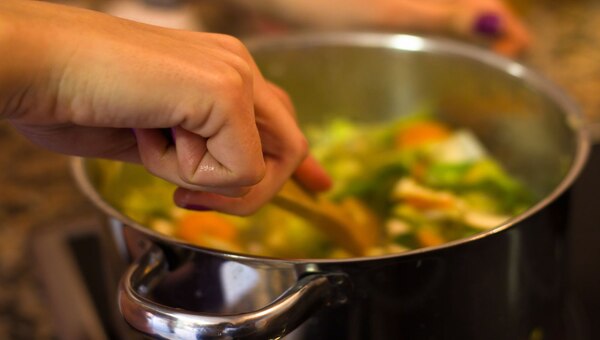How to Practice Mindful Cooking for Nourishing Meals

In today’s fast-paced world, the act of cooking has become more of a rushed chore than a mindful experience. However, approaching cooking with mindfulness can transform this daily task into a nourishing and enjoyable ritual. Mindful cooking involves being fully present in the kitchen, savoring the ingredients, and cultivating a deep connection with the food we prepare. By embracing this practice, we not only create delicious and nourishing meals but also promote a sense of peace, relaxation, and gratitude in our lives. In this blog, we will explore the concept of mindful cooking, its benefits, and practical tips to integrate mindfulness into your culinary journey.
Understanding Mindful Cooking
Mindful cooking is a form of mindfulness, which involves paying deliberate attention to the present moment without judgment. When applied to the kitchen, it means being fully engaged in the cooking process, savoring each step, and appreciating the sensory experience of preparing food. By practicing mindful cooking, we can break free from distractions, such as electronic devices and busy thoughts, and create a space of mindfulness and calm in our lives.
Read More : The Role of Nutrition in Managing Hypothyroidism
The Benefits of Mindful Cooking
- Enhances the Culinary Experience: Mindful cooking allows us to fully immerse ourselves in the process of cooking, making it a more enjoyable and enriching experience.
- Improves Food Quality: When we cook mindfully, we pay attention to each ingredient, ensuring they are of high quality and prepared with care.
- Encourages Healthy Choices: Mindful cooking encourages us to make wholesome and nutritious choices when selecting ingredients for our meals.
- Reduces Stress: Engaging in mindful activities, such as cooking, can reduce stress and promote relaxation.
- Fosters Creativity: Mindful cooking can spark creativity in the kitchen, leading to innovative and delicious recipes.
- Strengthens Connection with Food: Mindful cooking helps us develop a deeper appreciation and connection with the food we eat.
14 Practical Tips for Mindful Cooking
1. Set the Mood
Create a calming ambiance in your kitchen. Play soft music, light a candle, or open a window to let in fresh air and natural light.
2. Start with Gratitude
Before you begin cooking, take a moment to express gratitude for the ingredients and the opportunity to prepare a meal.
3. Focus on Your Senses
Engage your senses while cooking. Observe the colors, textures, and aromas of the ingredients. Feel the different textures as you chop and stir. Listen to the sizzling and bubbling sounds as you cook.
4. Slow Down
Cooking mindfully requires a slower pace. Avoid rushing and focus on each step with intention and care.
5. Minimize Distractions
Keep distractions, such as phones and television, away from the kitchen. Create a technology-free zone to fully immerse yourself in the cooking process.
6. Practice Deep Breathing
Take deep breaths while cooking to stay present and centered. If you find yourself getting anxious or stressed, pause and take a few calming breaths.
7. Embrace Imperfection
Release the need for perfection in your cooking. Embrace the beauty of imperfection and see each meal as a unique expression of your creativity.
8. Cook Seasonal and Locally
Use seasonal and locally sourced ingredients whenever possible. This fosters a connection with the environment and supports sustainable practices.
9. Mindful Eating
Extend mindfulness to eating by savoring each bite, chewing slowly, and fully experiencing the flavors and textures of the food.
10. Cook with the Intention
Set an intention for your cooking, whether it’s to nourish your body, create a comforting meal, or share joy with loved ones.
11. Engage Your Imagination
Visualize the result of your meal and the enjoyment it will bring to those who share it. Let your imagination guide you in the cooking process.
12. Experiment and Play
Approach cooking with curiosity and a sense of playfulness. Don’t be afraid to try new ingredients or techniques.
13. Involve Others
Cooking mindfully can be a beautiful shared experience. Involve family members or friends in the cooking process and enjoy the collective effort.
14. Clean Mindfully
Even the act of cleaning up can be done mindfully. Embrace the sensory experience of washing dishes and tidying up the kitchen.
Read More : How to Incorporate Mindful Breathing into Your Yoga Practice
Conclusion
Mindful cooking is a transformative practice that can enrich not only our meals but also our overall well-being. By being fully present in the kitchen, we savor the process of cooking and develop a deeper connection with the food we prepare. The benefits of mindful cooking extend beyond the culinary experience, promoting relaxation, creativity, and gratitude in our lives. By setting a mindful ambiance, focusing on our senses, and cooking with intention, we cultivate a sense of peace and fulfillment in the kitchen. Embrace the practice of mindful cooking, and you will not only create nourishing and delicious meals but also foster a greater sense of mindfulness and joy in your daily life.




